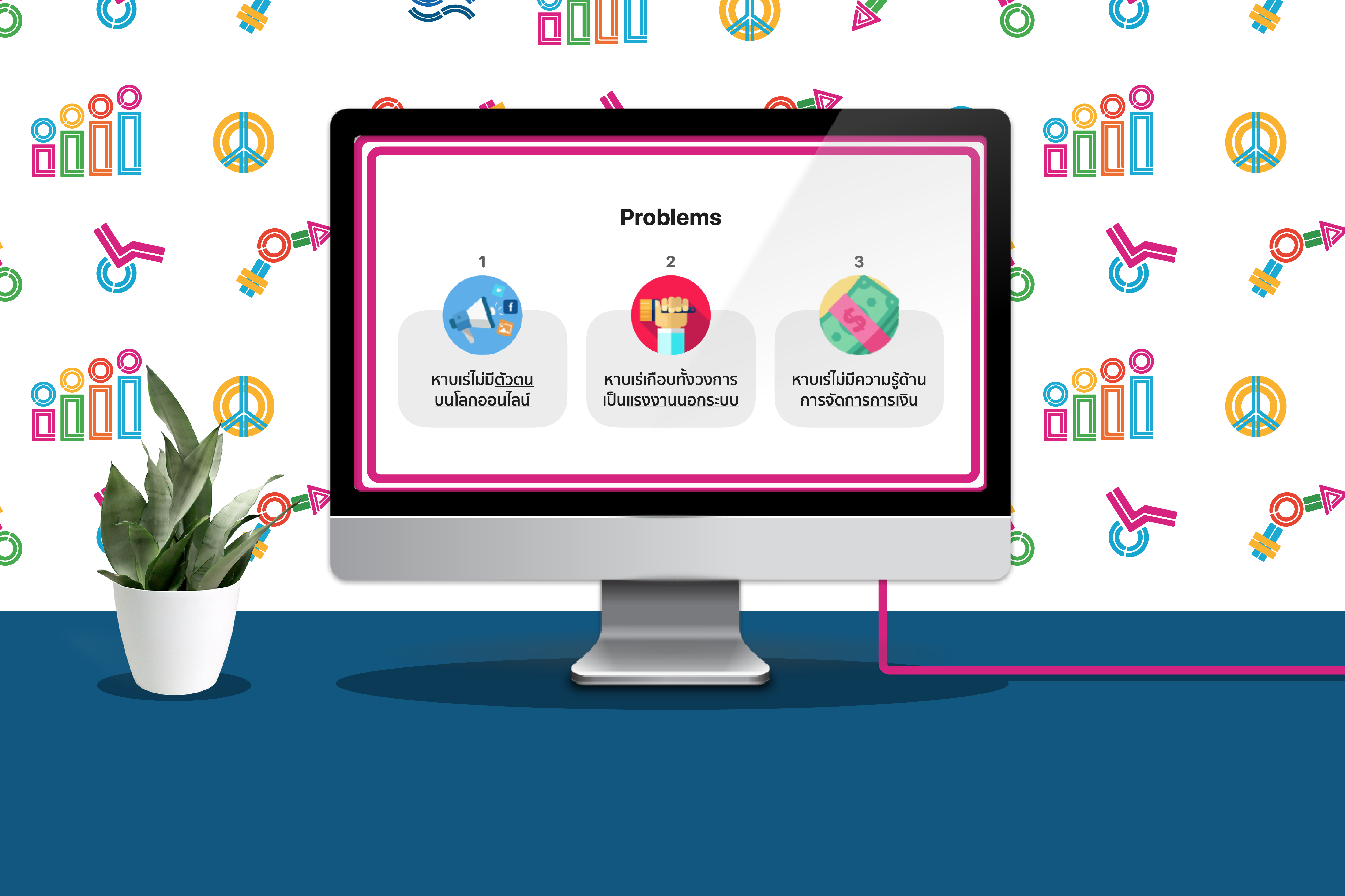- Published Date: 04/01/2022
- by: UNDP
Fetch Mobile Ice Cream Vendors with This Anti-Inequality Innovation!

For the longest time, street vending has sparked heated debates in Thailand, due to the vendors’ alleged encroachment of public space and their contribution to urban pollution, with or without the awareness of their action. However, the team “Carter” sees this service as a way to reduce inequality in the society. Then what exactly did they recognize in street vendors, and which factors could finally close the gap in the society in a sustainable way?
We talked with Supawut “Sax” Presangeiam, youthful representative of Carter, about their project with Youth Co:Lab 2021, which was selected as one of the top 5 finalists to join the second round, and granted them the opportunity to turn their interest into a reality. He said that the name “Carter” was derived from “cart”, and the addition of the suffix -er was to show that humans were an integral part of it. Sax told us that he and his teammates were developing an application that served as a marketing tool for street vendors, increasing their sales and expanding vending and buying channels.
While some may consider street vending as a persistent problem, foreigners see a distinct and heterogenous cultural identity in Thailand, especially when it comes to street food, tourists’ long-standing favorite. From a social science perspective, Sax thought that street vendors offered food at an affordable price, feeding low-wage workers without demanding much money. Vendors also needed not to make a large investment in restaurant building. Both street vendors and low-wage workers supported each other; if one day street food vending disappeared, those dependent on it would be greatly affected by such loss.
Nevertheless, Carter also does not dismiss street vendors’ issue with public space. Sax explained that his team were committed to carrying out 3 missions: 1) encouraging vendors’ participation and 2) ensuring that partner vendors uphold cleaning and sanitation standards and 3) are able to keep up with the the world, since the current food delivery system was exclusively tied to restaurants with fixed locations, effectively excluding street vendors from the system and forcing them to continue doing business in an old school way. As of now, Bangkok Metropolitan Administration has allowed street vending at markets and in special vending areas, but hawking still provokes public criticism, as seen in the case of a mobile ice cream vendor who was arrested and fined for his business. To Sax, street vendors were informal workers who were unprotected, unregistered, pushed out, and barred from the participatory process. The authorities did not even realize the urban poor generally anticipated the daily arrival of street vendors.

As a result, Carter emerges as an application that matches a vulnerable group with another. The function of this application is simple: this platform will track the real-time location of street vendors, or provide information on their vending spots each week. For example, customers can pre-order or purchase a product beforehand, or wait for the vendor at their vending spot after seeing them approaching the destination on the application. Sax thought that maximization of people’s digital knowledge, acquired from the experiences of accessing several social assistance programs online, was crucial. Therefore, the main concern for this team was not access to technology, but sustainability of this application itself, with users as the determining factor. They began with a short-term goal, starting a trial period, and promoting this application to people so that they could recognize the value of street vendors at the same time.
The 5 members of this team will assume different roles and scope of work. The team is divided into application development, marketing, and social issues sectors, with the third one coordinating with NGOs for information and knowledge sharing. Sax always told his team that, without Youth Co:Lab, this project would never come this close to a reality. In the past, he focused exclusively on social issues. After going through the training sessions, he understood the ways of sustainable social enterprise, which answered the needs of his team, because they did not want to leave no one behind, as well. To him, Youth Co:Lab was a hub of mentors who advised them closely.
When asked about indicators of success and future action plan, Sax admitted that both had not been planned out clearly, since street vending was a sensitive issue with a wide range of parties involved. They decided to divide this project into 4 phases. At the initial stage, they would focus on building an easily accessible platform and promotion of their product for maximum awareness. They could not predict the long-term feedback, but one of the KPIs was growing numbers of new vendors and customers, an outcome unachievable in a single try. For projects intended for social transformation, plan adjustment was nothing out of the ordinary.
Sax remarked that, for first-year university students who attempted to tackle such a big issue, a team with every single member recognizing the value of public participation would be impossible to find elsewhere, except in his crews. This project was not by nature a for-profit startup business, it was essentially a social enterprise that would not allow anyone to be left behind. Their goals already went beyond that. What they were doing right now was creating a prototype and content, which would be released from time to time, and identifying worst case scenarios, estimating potential difficulties before they happened to the team. Sax said that the ideal society could happen only with the participatory process. His vision of the utopia involved every individual engaging in a conversation, co-existing and extending compassion to each other.
Check out the progress of Carter at Carterapp.co





